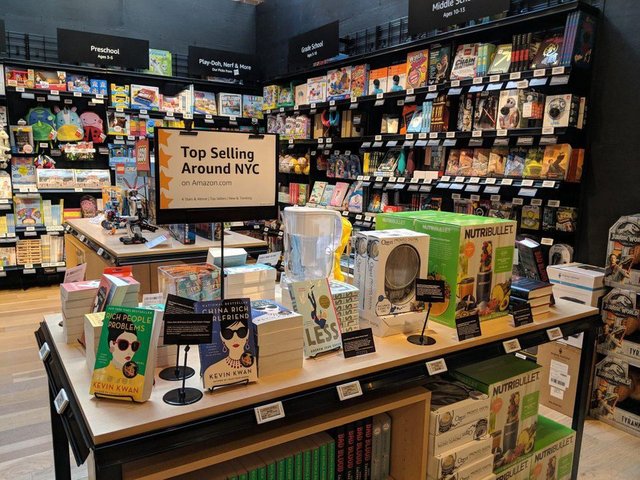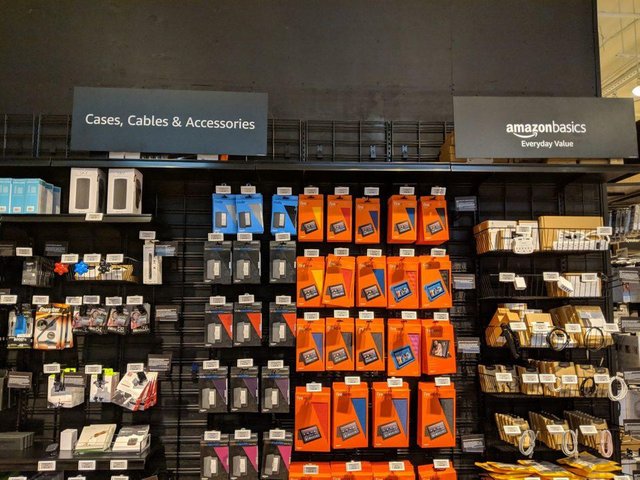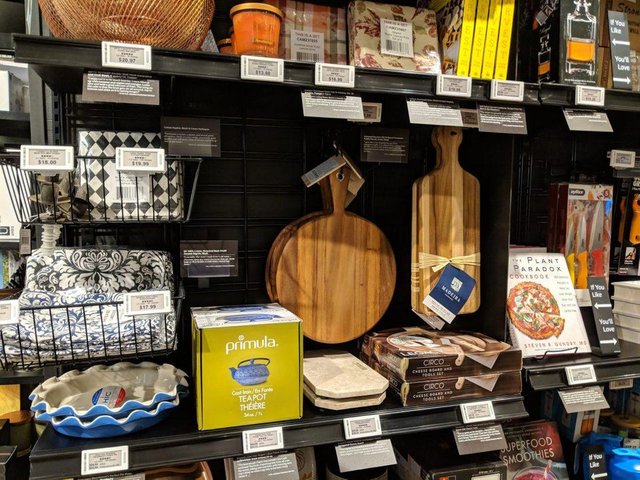A Look Inside Amazon's New '4-Star' Store
Today, Amazon opened its first “Four Star Store” in New York City, a new retail concept that brings products that are trending on Amazon into a real life store.
Amazon says it created the store to be a place where its customers can discover products. “Amazon 4-star’s selection is a direct reflection of our customers—what they’re buying and what they’re loving,” according to the announcement made yesterday. The store also highlights trending products and Amazon’s slew of technology devices.
It’s unlikely that Amazon took out a store lease in the upmarket SoHo neighborhood of Manhattan simply to show shoppers what other people are buying on Amazon—it would be far more efficient to do this online where they could reach tens of millions of shoppers. In creating a reflection back to shoppers of what they like, Amazon is accomplishing two goals: building on its existing mountain of data on shopping preferences and behavior, and giving customers a new way to experience products. And as luck would have it, Amazon already has an impressive number of devices that shoppers are looking to try and buy—making a brick-and-mortar store like this worthwhile.
I visited the store today to check it out.

Product display at the Amazon 4-Star store in New YorkKiri Masters
Product Assortment
Amazon says of the selection, “we started with some of the most popular categories on Amazon.com including devices, consumer electronics, kitchen, home, toys, books and games, and chose only the products that customers have rated 4 stars and above, or are top sellers, or are new and trending.”
A spokeswoman at the store confirmed that in addition to the 4-star and "popular product" criteria, Amazon lays other factors into their merchandising selection, such as how the products would fit inside the store experience.
The store is set up with banks of themed product displays. There are curated collections of products like like “Most-Wished-For,” “Halloween,” “Small Kitchen Appliances” and “Trending Around NYC.” Alongside the products, displays call out relevant customer reviews. This is somewhat ironic, given that “showrooming” (when shoppers pull out their phone in a retail store to research products and buy them on their mobile device—often on Amazon—instead of the store they’re standing in) is a common complaint for other retailers.
Among the various in-store displays, Amazon private label brands and devices take up a good chunk of shelf space. For example, a wall display in the electronics section was primarily taken up by Amazon Basics chargers and cables and cases for Amazon Kindle devices. Fair enough, given that Amazon Basics is the leader in this category.

Product display at the Amazon 4-Star store in New YorkKiri Masters
Amazon has pushed aggressively into promising product categories, a notable recent one being a private label brand of dry dog food called Wag, reputedly the first of a major expansion of the company’s pet products business. And a recent One Click Retail said that Amazon has expanded its private-label portfolio to nearly 80 unique brands.
The store also launched shortly after Amazon rolled out a slew of new Alexa-enabled devices, providing a platform for shoppers to try and buy the new technology in store.
In looking at the selection of non-Amazon products in store, I found that it more or less lined up with what Amazon shows are its top-selling and trending products online in each category—with a few notable exceptions. In the Electronics category on Amazon.com, Google's new home wifi system, the Roku Express, and Apple Airpods are listed online as top-selling consumer devices with 4 star ratings or more. These products represent direct competitors to Amazon’s own ecosystem or hardware (Roku's Express being a competitor to the Fire Stick, for example). At this point it’s unknown whether Amazon froze out these products from the store assortment or if the competing brands didn’t want to be involved.
Store Technology
The checkout technology used in the store, and the store layout, is more akin to the existing Amazon bookstores than the new Amazon Go convenience stores. 4 Stars has a more traditional checkout experience than the “Just Walk Out” technology in the Go stores. Still, I was able to check out a Play Doh toy set for my toddler in just one minute by using the Amazon Shopping app which already had my payment details saved.
Prices are dynamic, based on real-time price updates from Amazon.com. Due to the nature of the Amazon marketplace, prices on the website change frequently depending on which merchant is winning the “Buy Box.” The 4 Stars store reflects the current Buy Box price.
A Store built on the premise of credible product reviews
Like in the Amazon bookstores, reviews from Amazon customers are displayed alongside some of the products. And in fact, the entire premise of the store is that all products are rated with 4 stars or more online.
This surfaces an interesting battle between product reviews and credibility on Amazon. Amazon has been suffering from issues with its product review system in recent years. Because of the weight that product reviews carry in many shopper buying decisions, some merchants started using underground Facebook groups and “black hat” tactics to get reviews. Amazon appears to be taking such problem seriously, but in building a marketplace that prioritizes reviews, it has created a monster that’s hard to tame.
Alongside fighting disreputable review activity in the marketplace, Amazon launches a store concept that tries to highlight the credibility of its reviews ecosystem.

Product display at the Amazon 4-Star store in New YorkKiri Masters
The store spokeswoman couldn’t confirm if additional 4-Star stores would follow this one. But given Amazon’s recent brick-and-mortar launches (Amazon Go convenience stores, bookstores and Whole Foods), it does appear to be a way to continue to test and learn in new shopping environments and overall premise as a one-stop-shop. The kicker is Amazon’s array of private label brands: built with shopper data, and reinforced through observing online and offline activity. Shoppers trust Amazon, and by extension, they trust Amazon Basics, Lark & Ro, Rivet and other private labels developed by Amazon. The 4-Star store continues to build the data flywheel for private label development and shopper adoption.